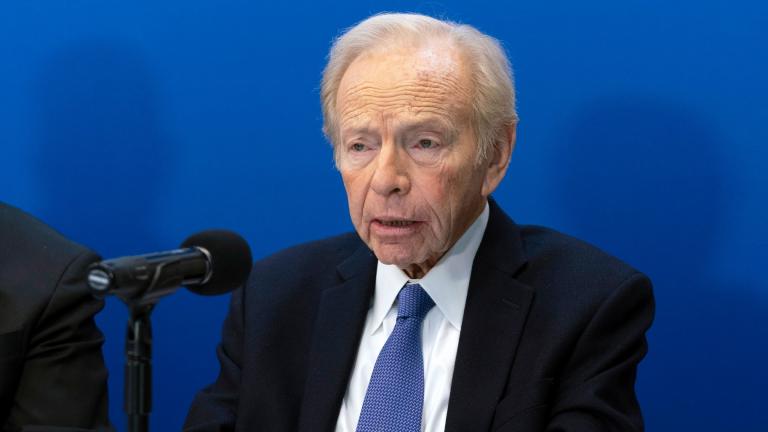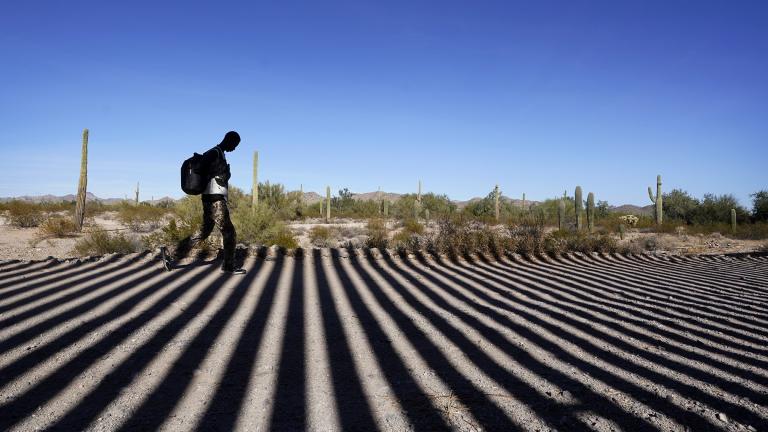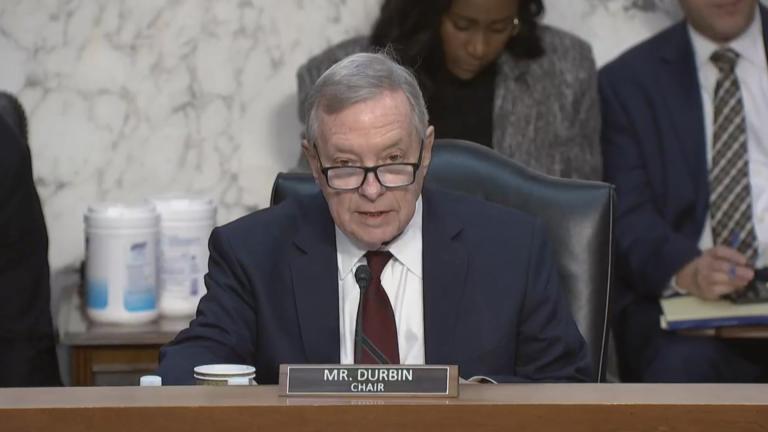Service members who have returned to the U.S. after fighting in Vietnam or Iraq may have escaped bullets, IEDs and other fatal hazards of war, but many are dealing with more hidden complications.
Critics say the federal government has fallen far short in taking care of them.
Chicagoan Frank Gutierrez is set to retire from the military next month after 20 years of service. He first joined the armed services in 1999 and has since served five tours in the Middle East. Now, on top of his full-time job, he’s active in a variety of local veterans organizations.
He says many veterans deal with a lot: PTSD and issues with transitioning back to civilian life, but also physical health problems.
“It’s common for me to come across a veteran with respiratory or cardiovascular disease. I know a lot of veterans that I served with already passed away due to … cancers that can be linked to burn pit exposure,” Gutierrez said.
The term burn pits may be unfamiliar to civilians, but most any member of the modern U.S. military who has been deployed would have a hard time avoiding them.
“Burn pits are located in all sorts of places where military is deployed, and they essentially use it to dispose of garbage, of human waste. So they contain black smoke that, if you’re deployed on one of those areas, you breathe it in,” said veteran Ed Farmer, whose National Guard unit was called in 2004 to fight in Iraq. “Chemicals, trash, plastic, human excrement. Anything and everything they’ll throw into a burn pit.”
Gutierrez called burn pits an occupational hazard for modern members of the military when they’re deployed.
He said on one tour in Iraq, there was a burn pit hundreds of feet from his trailer.
“Yes we were informed that the fumes may be hazardous to our health, but a lot of times it’s unavoidable – you know, driving through towns, burning oil fields,” he said
There’s widespread recognition that exposure to these burn pits, and the toxic contaminants they spew, is the cause of health issues, like bronchitis, asthma and a variety of cancers.
Area veteran Maureen “Mickey” Magnifico considers Corinne “Cori” Smith her “battle buddy.”
The two served together with the U.S. Army in Iraq from 2003 to 2004.
Smith later died of a rare form of cancer in 2013, a cancer Magnifico said she and Smith believed was connected to exposure to burn pits they’d go by on daily five-mile runs.
Magnifico says burn pits took her sister-in-arms, and left her best friend’s son without his mother.
She said the government needs to “take responsibility.”
But for a long time, advocates for veterans said the government has not done so.
Farmer is now a lawyer, who helps veterans appeal denials of disability compensation claims.
“We see claims for burn pits very frequently. Most of the time they are denied,” Farmer said. “And that’s because the veteran doesn’t have the medical evidence to back it up.”
A doctor needs to certify that there’s a 50/50 likelihood the condition is directly tied to the veteran’s service, but Farmer said getting a doctor with the expertise and willingness to do so can be difficult and expensive.
Farmer sees that with his own clients, and he witnesses the consequences given that the appeals process of a denied claim can take years.
“They have some sort of incurable cancer, they’re terminal, and they believe it’s from the burn pits and it probably is,” Farmer said. “They can’t work, they’re struggling to provide for their family. And that just shouldn’t be the case for veterans. Veterans should have to struggle to provide for their family because they have a condition that they obtained from serving their country.”
The U.S. Senate on Tuesday night passed a measure approved by the House earlier this summer that could cut down on Farmer’s client base, and he’s not mad about it.
The Honoring Our PACT Act, short for Promise to Address Comprehensive Toxics, will make it so veterans who served in certain areas over a period from the ‘90s on, and who have conditions like certain cancers, will get the presumption it’s related to their service and burn pit exposure.
That means they’ll get access to health care and financial support.
Veterans groups, with a PR lift from talk show host Jon Stewart, have been protesting in D.C. for its passage after delays due to some Republicans saying the measure would indirectly drive up government spending on other causes.
President Joe Biden, who pushed for its passage, is expected to sign the PACT Act into law next week.
Biden is in isolation for COVID, but tweeted out a video saying “finally, finally, finally we’re going to do justice to those who we lost as well as those who are still suffering from being exposed to the burn pits. It’s about time.”
Decades after he was first sent to war, Gutierrez also said it’s about time — he’s glad it finally passed.
“It’s always easy to write a check to go to war, but very difficult to write the check to treat the service members as they get home,” Gutierrez said. “Politicians in D.C. can fight over many things but fighting over veterans that place their lives on the line for fighting for our country shouldn’t be one of them. Never.”
Follow Amanda Vinicky on Twitter: @AmandaVinicky








